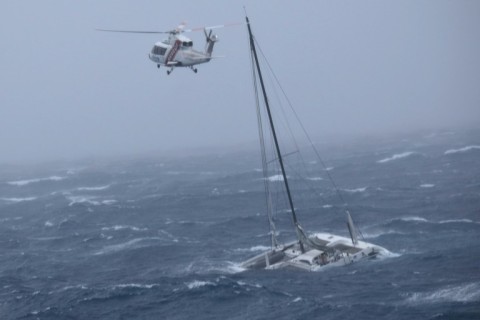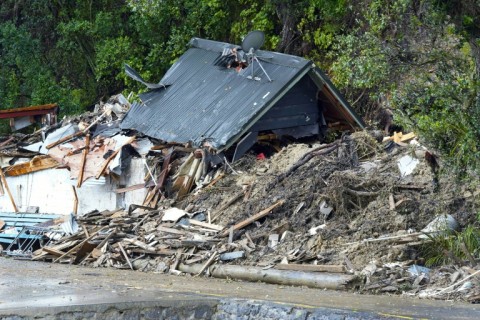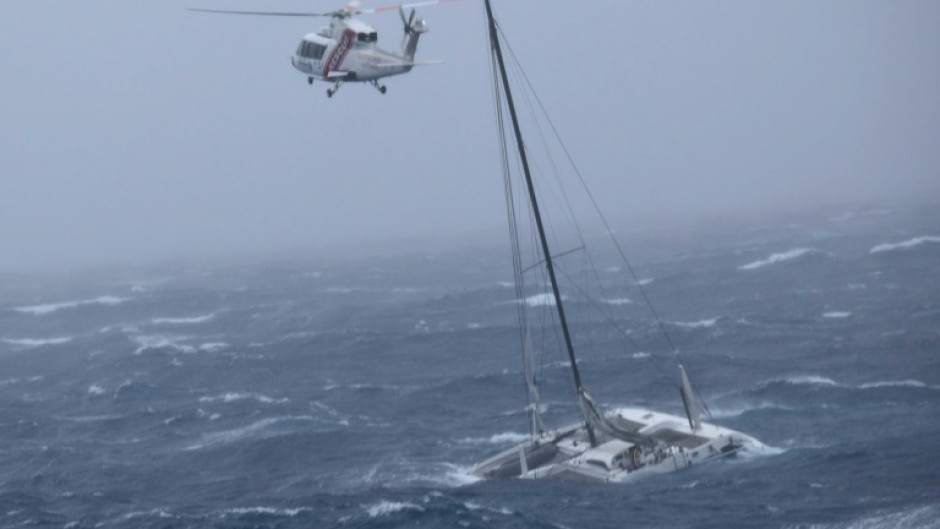
WELLINGTON - Cyclone Gabrielle swept away roads, inundated homes and left 225,000 people without power in New Zealand Tuesday, as a national state of emergency was declared.
High winds and driving rain lashed the country's populous North Island, in what Prime Minister Chris Hipkins called the "most significant weather event New Zealand has seen in this century".
"The impact is significant and it is widespread," he said. "The severity and the damage that we are seeing has not been experienced in a generation."
Daylight Tuesday revealed the severity of the disaster: roads eaten away by landslips and collapsed homes buried in mud, silt and a slew of storm detritus.
Falling trees smashed power lines and floodwaters blocked several major roads, leaving communities stranded.
Local media reported some people were forced to swim from their homes to safety. Others waded through stormwaters on foot. Some were forced to shelter in place.

An estimated 2,500 people have been displaced from their homes, but that number looks certain to rise.
More than three-quarters of New Zealand's five million residents live on the North Island, where the brunt of the storm is being felt.
Some areas are still inaccessible by road and without power or telecommunications.
Climate scientist Daithi Stone said Cyclone Gabrielle had been feeding off unusually warm seas, driven by a combination of climate change and La Nina weather patterns.
"Gabrielle is very much part of the story this summer of a warm nearby ocean using a warm atmosphere to pump rain onto Aotearoa," he said Tuesday, using the Maori-language name for New Zealand.
"It is also part of the global story of tropical cyclones becoming more intense under human-induced climate change."

